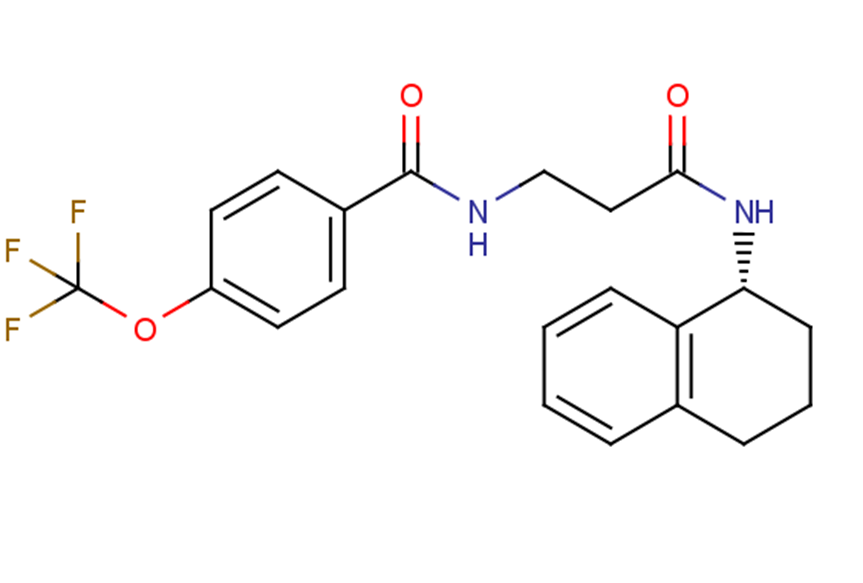
ML390
CAS No. 2029049-79-2
ML390( —— )
Catalog No. M22425 CAS No. 2029049-79-2
ML390 exerts its potent differentiation effect on multiple leukemia models.
Purity : >98% (HPLC)
 COA
COA
 Datasheet
Datasheet
 HNMR
HNMR
 HPLC
HPLC
 MSDS
MSDS
 Handing Instructions
Handing Instructions
| Size | Price / USD | Stock | Quantity |
| 5MG | 50 | In Stock |


|
| 10MG | 65 | In Stock |


|
| 25MG | 110 | In Stock |


|
| 50MG | 170 | In Stock |


|
| 100MG | 302 | In Stock |


|
| 200MG | Get Quote | In Stock |


|
| 500MG | Get Quote | In Stock |


|
| 1G | Get Quote | In Stock |


|
Biological Information
-
Product NameML390
-
NoteResearch use only, not for human use.
-
Brief DescriptionML390 exerts its potent differentiation effect on multiple leukemia models.
-
DescriptionML390 exerts its potent differentiation effect on multiple leukemia models.
-
In VitroML390 is active with an ED50 of ~2 μM in murine and human AML cell lines. In vitro, treatment of Lys-GFP-ER-HoxA9 cells with ML390 for 48 hr inhibits DHODH activity, leading to the dramatic (>500-fold) accumulation of the upstream metabolite DHO and the depletion of uridine and other downstream metabolites.
-
In Vivo——
-
Synonyms——
-
PathwayOthers
-
TargetOther Targets
-
RecptorOthers
-
Research Area——
-
Indication——
Chemical Information
-
CAS Number2029049-79-2
-
Formula Weight406.4
-
Molecular FormulaC21H21F3N2O3
-
Purity>98% (HPLC)
-
SolubilityDMSO:27 mg/mL (66.44 mM)
-
SMILESFC(F)(F)Oc1ccc(cc1)C(=O)NCCC(=O)N[C@@H]1CCCc2ccccc12
-
Chemical Name——
Shipping & Storage Information
-
Storage(-20℃)
-
ShippingWith Ice Pack
-
Stability≥ 2 years
Reference
1. Sykes DB et al. Discovering Small Molecules that Overcome Differentiation Arrest in Acute Myeloid Leukemia. National Center for Biotechnology Information (US); 2010-2013 Dec 15.
molnova catalog



related products
-
HBC 530
HBC 530 is a mimic of green fluorescent protein (GFP) fluorophore for imaging RNA in live cells.
-
DUPA
DUPA is used as the targeting moiety to actively deliver DTX for treatment of Prostate-Specific Membrane Antigen (PSMA) expressing prostate cancer.
-
Geniposidic Acid
Geniposidic acid is an iridoid glucoside, used to treat inflammation, jaundice and hepatic disorders.



 Cart
Cart
 sales@molnova.com
sales@molnova.com


